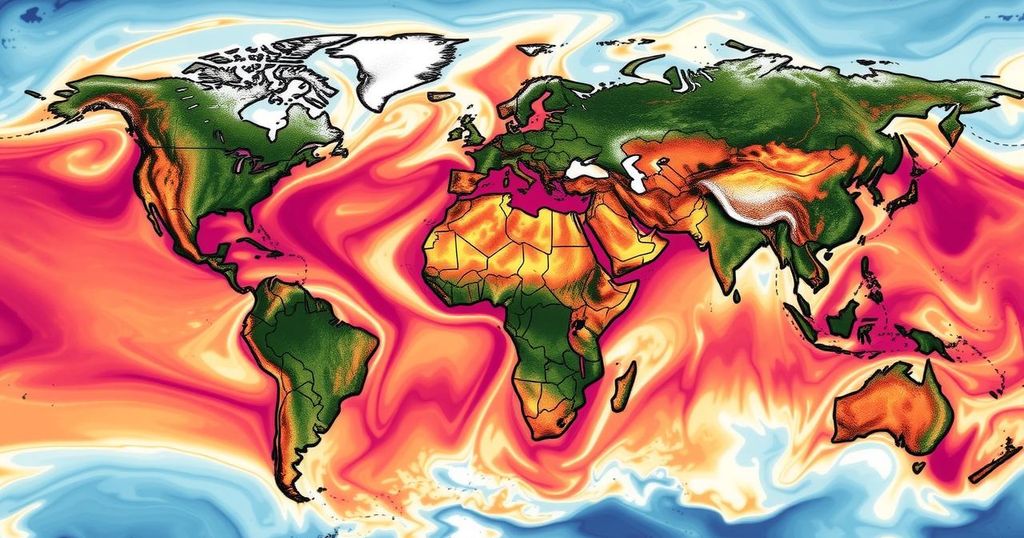The year 2024 is projected to be the warmest on record, with escalating climate change impacts observed globally. The World Meteorological Organization reports unprecedented greenhouse gas levels, extreme weather events, and a critical need for urgent climate action. Both UN and WMO officials emphasize the importance of reducing emissions and preparing for future challenges.
In 2024, the world experienced extreme manifestations of climate change, affecting various ecosystems and human communities alike. The year is anticipated to record the highest global temperatures due to a decade of relentless heat driven by human activities, as reported by the World Meteorological Organization (WMO). Greenhouse gas levels have reached unprecedented highs, contributing to the ongoing climate crisis, which is poised to inflict irreversible damage on our planet’s future.
UN Secretary-General António Guterres stated, “Today I can officially report that we have just endured a decade of deadly heat. The top ten hottest years on record have happened in the last ten years, including 2024.” Urging immediate action, he emphasized the critical need for countries to significantly reduce emissions and shift to renewable energy sources.
As WMO Secretary-General Celeste Saulo noted, repeated Red Alerts have been issued highlighting the pressing state of global climate. Marking its 75th anniversary in 2025, the WMO will implore the global community to take collective responsibility for climate action. Saulo stated, “Every fraction of a degree of warming matters, and increases climate extremes, impacts and risks.”
The past year witnessed catastrophic weather events, including unprecedented rainfall and flooding, causing extensive loss of life and severe economic repercussions in various nations. The emphasis on the Early Warnings for All initiative aims to bolster climate disaster preparedness, while efforts on climate mitigation include the Global Greenhouse Gas Watch initiative. Furthermore, 2025 will focus on the preservation of glaciers and polar regions as part of the International Year of Glaciers’ Preservation, showcasing the importance of safeguarding these vital environmental components.
The article highlights the significant and dire impacts of climate change experienced globally in 2024. With the consequences of a warming planet becoming increasingly severe, this report by the World Meteorological Organization underscores the alarming rise in global temperatures and greenhouse gas concentrations. Climate change, driven largely by human activity, has increasingly highlighted the urgency for immediate action to mitigate further damage. The year also marks critical milestones in climate advocacy and awareness, including various initiatives aimed at enhancing climate resilience and sustainable practices.
In conclusion, the year 2024 has underscored the urgent need for comprehensive climate action in light of record-breaking temperatures and extreme weather events. The statements from UN Secretary-General António Guterres and WMO Secretary-General Celeste Saulo reflect the consensus on the dire situation and the pivotal role of global cooperation in addressing climate change. As communities and ecosystems face ongoing threats, immediate and sustained efforts are necessary to foster a sustainable and resilient future.
Original Source: www.wam.ae






